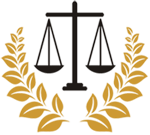Need a Lawyer for Your Intellectual Property Case?
Our network of top lawyers will evaluate your potential case for FREE! Simply provide a few details about your case and get a free attorney review.
Get a Free Consultation >>Search Our Site
All Legal Articles
Read Related Legal Articles
Can I Sue for a Domain Name/Cybersquatting?
When a person or entity registers a trademarked domain name to which he or she does not have the rights and with the intent to profit, this is called cybersquatting. Numerous paths to profit exist in this practice, depending on the entity's goal. The most well known is a hope to sell the domain name to the entity or person to whom the trademark belongs.
Cybersquatting goes beyond attempts to profit directly, though. In some cases, someone registers a domain name similar to a trademarked name in an attempt to siphon traffic from the legitimate site, gathering users who misspell the URL for the correct site. The intent here may be increasing traffic to the illegitimate site or even taking personal data from these users.
The Anti-Cybersquatting Consumer Protection Act (ACPA) offers legal protection for victims of cybersquatting.
The History of Cybersquatting
Cybersquatting goes all the way back to the internet's early days. Early adapters recognized the potential value in registering the domain name of well-known brands and companies long before the companies themselves did. The goal of these entrepreneurial types was simple profit; register the domain name and then sell it to the rightful company. Brands that fell victim to this tactic include Avon, Hertz, Fry's Electronics, and Panasonic. Today, companies recognize the importance of registering their domain name, so this form of cybersquatting is far less common.
People still register domain names with the intent to profit, but instead they employ popular search terms someone looking to start a small business might choose for their domain name. If the term has no trademark, ACPA offers no protection.
Have I Been a Victim of Cybersquatting?
Enter your preferred domain name and see where the internet takes you. Did you land on a functioning website with products and services related to the name? If so, this likely is not cybersquatting. You still may have a case of trademark infringement, though. However, if the website is mostly full of ads selling products or services related to your trademark, this is likely cybersquatting. In other words, the site owner is attempting to sell ad space to your competitors on the strength of your good name.
If you enter your domain name and instead land on a page telling you that the domain name is for sale, or the site is under construction, you likely are dealing with a cybersquatter. In this instance, the goal is selling the domain name, not siphoning the traffic of people looking for your site. However, the domain owner may actually have a website under construction, so even this is not a definite case of cybersquatting.
A bit of due diligence goes a long way in determining whether you are the victim of cybersquatting. Whois.net allows you look up the domain name owner. He or she may be willing to sell you the domain name at a reasonable price that would be cheaper – and easier – than filing a lawsuit.
What are Your Options?
In America, cybersquatting victims have two options: filing a lawsuit under the provision of ACPA or using the international arbitration system created by the Internet Corporation of Assigned Names and Numbers (ICANN). Trademark experts prefer the second option as the faster, less expensive choice.
ACPA allows trademark owners to file suit against cybersquatters in federal court. A successful suit allows possible monetary damages. The plaintiff must prove four things:
- The trademark name was distinctive at the time the defendant registered the domain name.
- The trademark is protected under the federal trademark law.
- The defendant registered the domain name with intent to profit.
- The domain name is either identical to, or similar enough to be confused with, the plaintiff's registered trademark.
The defendant must prove that he or she registered the domain name in good faith.
ICANN does not require an attorney; its goal is arbitrating domain name disputes to avoid litigation. No monetary damages are awarded. Cybersquatting victims can bring an action for arbitration if they can prove three items:
- The domain name was registered in bad faith.
- The domain name owner has no rights or legitimate interest in the domain name.
- The domain name is either identical to, or similar enough to be confused with, the claimant's registered trade- or service mark.
Schedule a Free Consultation
If you are the victim of cybersquatting, schedule a free consultation with a business and commercial law attorney. He or she will advise you on the merits and viability of your case and help you determine your best course of action.
